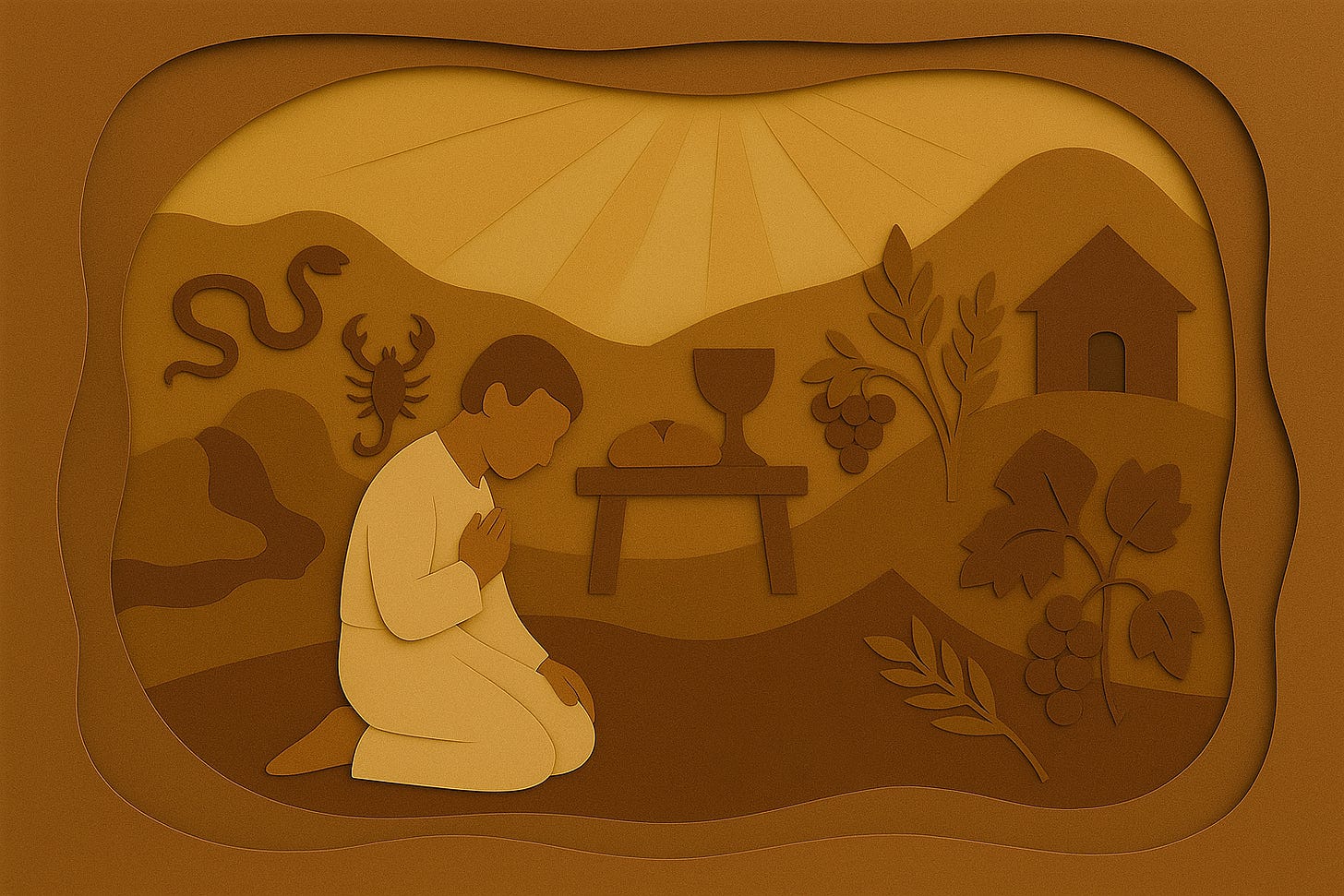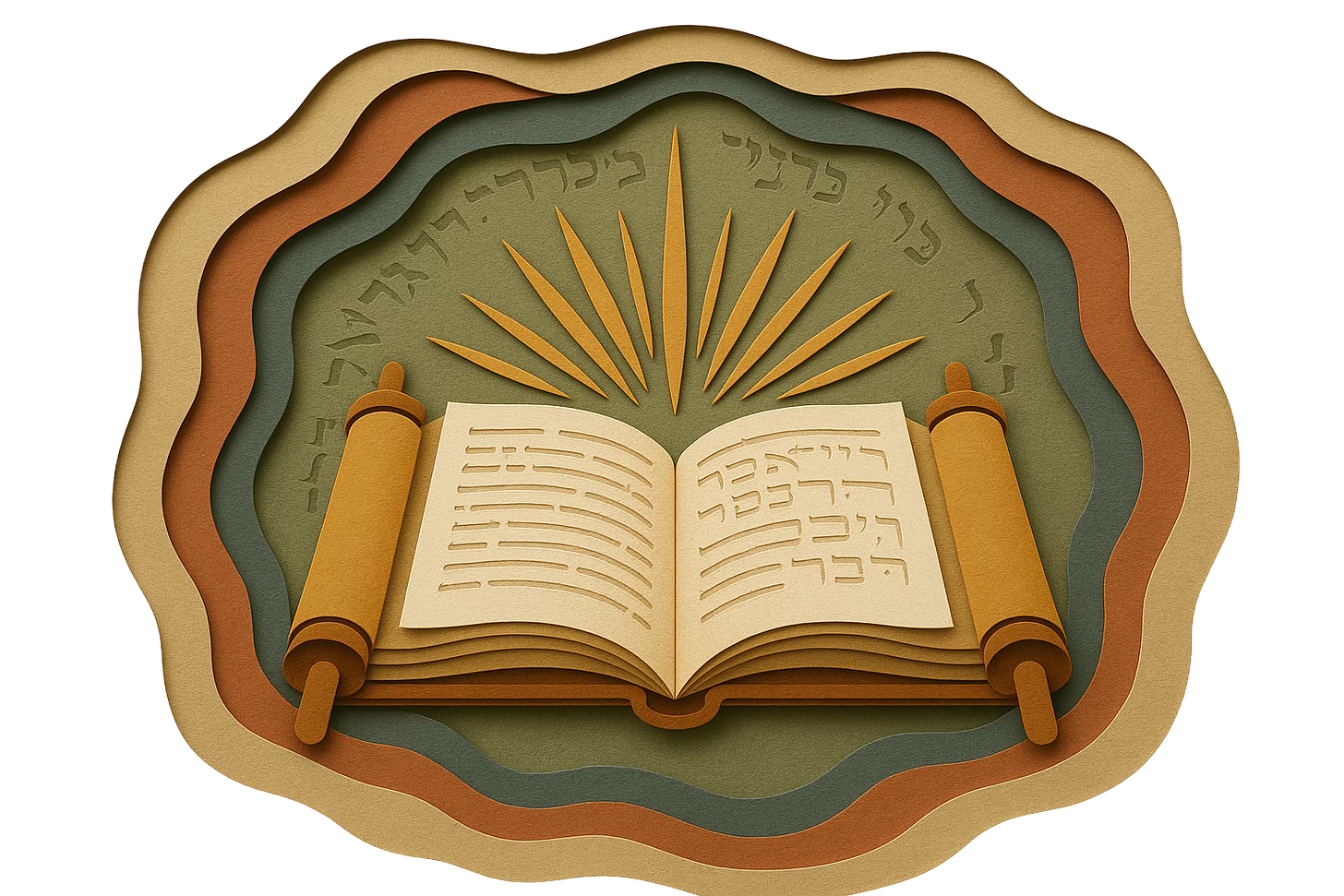Grateful, Not Proud — Remembering the Source
How remembrance guards the covenant and gratitude keeps the heart humble.
Scripture: The Living Word
Deuteronomy 8:17–18
“You may say to yourself, ‘My power and the strength of my hands have produced this wealth for me.’ But remember the Lord your God, for it is He who gives you the ability to produce wealth, and so confirms His covenant, which He swore to your ancestors, as it is today.”
We often say, “I’m proud of you,” or “I’m proud of what I accomplished.” The intent is good—but the direction of glory is off.
Pride centers the person; gratitude centers the Provider.
Moses’ words echo across generations: Don’t forget Who gave you what you have.
When life gets comfortable, pride whispers, “You did this.”
Gratitude kneels and replies, “Yah did this.”
Gratitude isn’t just polite—it’s remembrance. It’s spiritual memory that keeps us tethered to covenant faithfulness.
Context: Behind the Words
Historical Setting — The Test of Prosperity
Deuteronomy records Moses’ final message to a new generation about to enter the Promised Land. Their parents had died in the wilderness for disobedience and pride. Now this generation stood ready to inherit houses they didn’t build, vineyards they didn’t plant, and wells they didn’t dig.
The greatest danger wasn’t behind them—it was within them.
In the wilderness, dependence on God was daily: manna fell, water flowed, and faith sustained them. But in Canaan, prosperity could disguise dependence as self-sufficiency. So Moses warns:
“When you have eaten and are satisfied… be careful that you do not forget the Lord your God.” (Deut. 8:12–14)
The temptation of abundance is to confuse stewardship with ownership—to believe the fruit of obedience is the result of our own ability.
The Heart of Forgetfulness
n Hebrew, to forget (שָׁכַח / shakach) means more than losing memory—it means neglecting to acknowledge God’s ongoing activity.
To remember (זָכַר / zakar) means to recall and respond—to live in continual awareness that every success is covenantal, not coincidental.
Throughout the Torah, Yahweh commands remembrance:
Sabbath teaches that God, not man, completes the work.
Feasts and offerings rehearse dependence and gratitude.
Tithes declare, “Everything I have came from You.”
So when Israel said, “My power and my hands have produced this wealth,” it wasn’t mere arrogance—it was covenant betrayal.
Pride is spiritual amnesia; gratitude is spiritual memory.
From Wilderness to Worship
Deuteronomy 8 moves in a divine rhythm:
Need → Provision → Warning → Remembrance.
Yahweh is saying:
“When you no longer feel desperate, don’t forget you’re still dependent.”
Gratitude is not good manners—it’s covenant maintenance. Forgetfulness is rebellion; humility is worship.
Modern Parallel
Our wilderness may not be sand and stone—it’s struggle and scarcity.
In lack, we pray desperately. In abundance, we often shift from “Thank You, Lord” to “I worked hard for this.”
Every blessing becomes a test: Can you handle success and still stay grateful?
Covenant: The Relational Core
Gratitude as Remembrance
Verse 18 anchors gratitude in relationship:
“He gives you the ability to produce wealth and so confirms His covenant.”
Every blessing is covenant proof—Yahweh saying, “I keep My word.”
When Israel gave thanks, they remembered the covenant.
When they took credit, they forgot it.
The Promise to Abraham
The phrase “which He swore to your ancestors” reaches back to Yahweh’s promise:
“I will bless you… and through you all nations will be blessed.” (Gen. 12:2–3)
Israel’s prosperity wasn’t a reward for effort—it was a testimony of mercy.
Each harvest and victory was Yahweh’s whisper: “I am still faithful.”
So when they said, “My power did this,” they rewrote the covenant story with themselves as the hero.
Covenant and Worship
Covenant is not a contract of equals—it’s a relationship of dependence.
Yahweh provides; we respond. He gives; we glorify.
Gratitude restores divine order—it returns the glory where it belongs.
“What do you have that you did not receive?” (1 Cor. 4:7)
“Every good and perfect gift is from above.” (James 1:17)
Gratitude speaks covenant language: “I remember where this came from.”
Pride speaks forgetfulness: “Look what I did.”
Covenant Renewal
Moses’ warning remains for every believer blessed by grace.
When we forget to give thanks, we drift toward self-reliance.
When we cultivate gratitude, we re-enter covenant rhythm:
“You are the Source; I am the steward.”
Covenant Summary
Practice: Living It Out
From Possession to Praise
Moses didn’t condemn success—he consecrated it.
The issue isn’t celebration but direction.
Pride crowns the self; gratitude crowns the Savior.
The Subtle Language of Pride
In daily life, pride rarely shouts. It whispers through ordinary words:
“I’m proud of myself.”
“I’m proud of you.”
“We’re proud of what we’ve built.”
At first glance, these phrases seem harmless — even encouraging. But spiritually, they can shift the center of gravity. They place the human story at the core of divine accomplishment.
When I say, “I’m proud of you,” I unintentionally make myself a reference point in someone else’s journey — my pride becomes part of their identity.
When I say, “I’m grateful for you,” I remove myself from the center and point both of us toward the One who made the moment possible.
💬 Pride says: “Look at what we did.”
🙏 Gratitude says: “Look at what God has done through us.”
Reframing Our Language
Words shape worship. When we reframe our speech, we retrain our hearts.
Here are some examples of subtle but powerful shifts:
This isn’t legalism — it’s alignment. It’s a spiritual discipline of directing honor back to its rightful place.
The Test of Success
Every breakthrough carries a test:
Will you glorify yourself—or remember your Source?
“Not to us, O Lord, not to us, but to Your name be the glory.” (Ps. 115:1)
Gratitude doesn’t shrink joy; it deepens it.
Because joy rooted in grace never ends when success fades.
Practical Example
Imagine a mentor encouraging a younger believer after they’ve overcome a major challenge:
Instead of saying, “I’m so proud of you,”
say, “I’m so grateful to see how God’s grace has strengthened you.”
That small change redirects both hearts toward heaven. It becomes a moment of worship, not just affirmation.
The person still feels seen and valued — but now they also feel anchored.
You’ve affirmed their effort while keeping their confidence rooted in God’s power, not human approval.
Three Takeaways
Gratitude humbles success.
It keeps achievement from becoming idolatry by reminding us Who gave the ability in the first place.Gratitude honors others without centering ourselves.
It lets us celebrate people as vessels of grace, not objects of our pride.Gratitude reclaims language for worship.
Every “thank You” becomes a mini altar — a place where glory returns to its rightful Owner.
Discussion Questions
What’s the difference between recognizing someone’s effort and taking credit for their outcome?
How can we celebrate others’ growth in a way that gives glory to God rather than centering ourselves?Why do you think pride often hides inside gratitude?
What are some examples of well-intentioned phrases (like “I’m proud of you”) that can unintentionally shift focus from the Giver to the receiver — and how could we reframe them?How does gratitude act as a covenant reminder in your own life?
Think of a moment of success or breakthrough — what would it look like to retell that story with God at the center instead of you?
Seven-Day Practice Rhythm: From Pride to Praise
📖 Day 1 – Remember the Source
Reflect on where your strength truly comes from. Identify one area where you’ve said, “I did this,” and reframe it: “Yahweh gave me the ability.”
→ Pray: “Father, remind me that everything I have is from You.”
(Deuteronomy 8:17–18)💬 Day 2 – Reframe Your Words
Listen to your speech today. Each time you or someone else says “I’m proud,” pause and turn it into gratitude.
→ Speak: “I’m grateful for what God is doing through you.”
(1 Corinthians 4:7)📜 Day 3 – Recount His Faithfulness
Look back over recent months—jobs, milestones, breakthroughs, even struggles—and trace God’s hand in them.
→ Write: a short list titled “I remember when You…” and thank God for each line.
(Psalm 103:1–5)🎶 Day 4 – Redirect the Glory
When someone praises you, don’t boast or deflect—turn the moment into worship.
→ Respond: “I thank God for allowing me to be part of that.”
(James 1:17)🤝 Day 5 – Recognize Others Rightly
Express gratitude for others without centering yourself. Affirm how you see God’s work in them.
→ Action: Send a message or call someone and tell them, “I thank God for you.”
(Philippians 1:3)🙏 Day 6 – Rehearse Dependence
Set aside five minutes to pray without asking for anything—only thanking God for His sustaining grace.
→ Pray: “Every breath, every opportunity, every gift is Yours.”
(Psalm 115:1)🌅 Day 7 – Rest in Remembrance
Spend quiet time in stillness. Reflect on how gratitude has shifted your perspective this week.
→ Whisper: “Yahweh, all that I am and all that I have is Yours.”
(2 Corinthians 10:17)
Closing Blessing: Remember the Giver
“Let the one who boasts, boast in the Lord.” — 2 Corinthians 10:17
May you never confuse stewardship with source,
nor blessing with ownership.
May your heart stay soft when your hands grow strong,
and your words return every good thing to the Giver of all.
When the world says “Be proud,”
may your spirit answer, “I am grateful.”
When others look at what you’ve built,
may they see the fingerprints of Yahweh all over it.
May gratitude guard your heart from pride,
and remembrance keep your covenant alive.
And may every breath you take
be a whispered act of worship that says,
“Yahweh, this was You.”
Amen.






